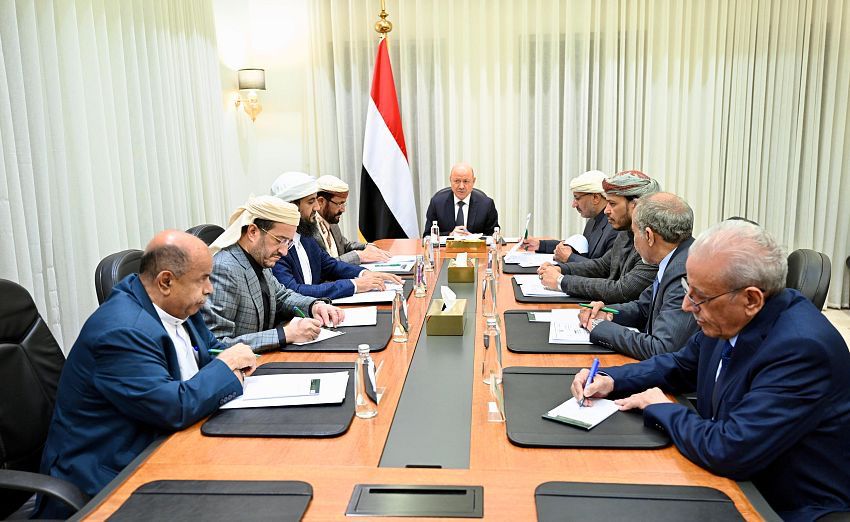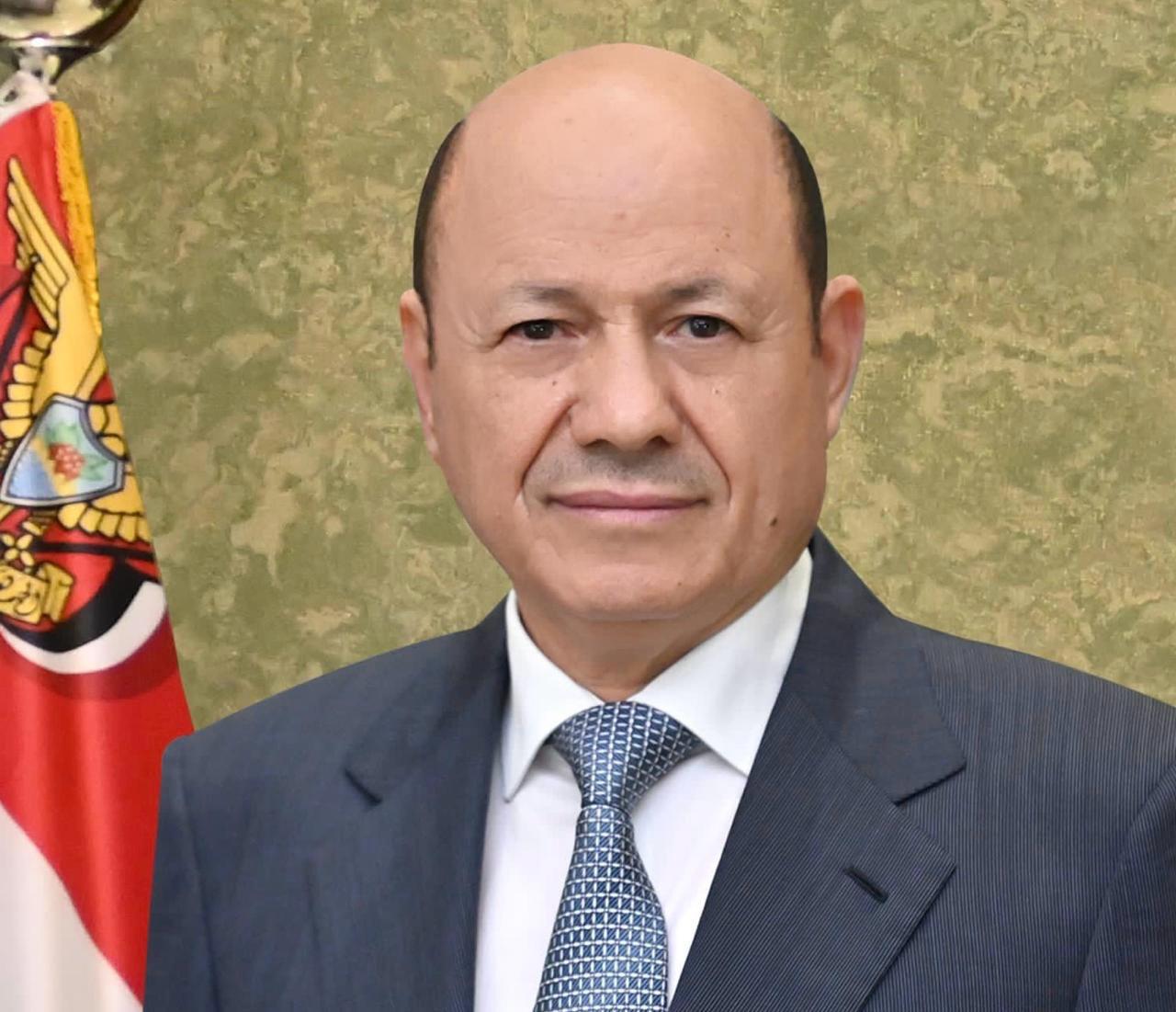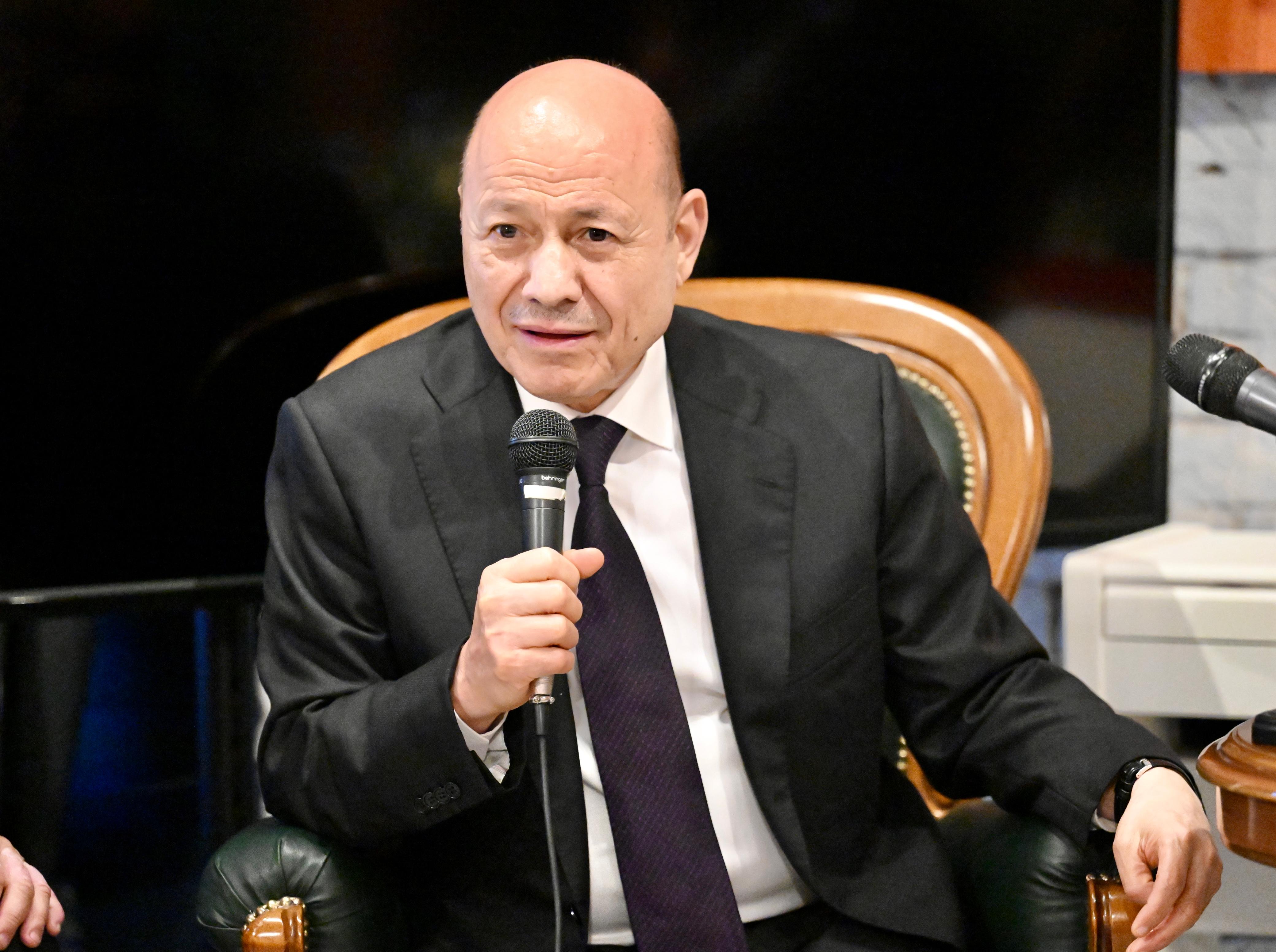
President Al-Alimi at Institute of Oriental Studies: Iranian Expansion Threatens International Balance, Peace, and Security
Moscow
His Excellency President Dr. Rashad Mohammed Al-Alimi, President of the Presidential Leadership Council, underscored the importance of giving due attention to the historic Yemeni-Russian relations through comprehensive study, objective analysis, and fair evaluation.
During a panel discussion organized by the Institute of Oriental Studies of the Russian Academy of Sciences, the President stated: “The relations between Yemen and Russia are neither fleeting nor incidental. Rather, they rank among the oldest ties established between an Arab state and the Soviet Union and remain some of the most genuine and deeply rooted in the consciousness of the Yemeni people.”
He clarified that Yemen was among the first Arab states to open its window to Moscow in the 1920s, when the first Soviet ship sailed to Al Hudaydah carrying essential supplies.
He added, “From that moment onward, the relationship transcended mere commercial exchange, evolving into a partnership, a historic solidarity, and a scientific and cultural bridge spanning decades.”
He emphasized that when Yemen overthrew the Imamate in the September 26 Revolution, Moscow was the first to recognize the nascent Republic. Similarly, when South Yemen gained independence, the Soviet Union was immediately present, supporting the establishment of state institutions and civil society.
His Excellency highlighted Russia's role in establishing Yemen's infrastructure—from ports to cement plants, to universities and institutes that have graduated tens of thousands of Yemenis, who continue to cherish their Moscow experience and retain its formative teachings to this day.
He said, “Just as Russia was a partner during times of construction, we are confident it will remain a partner during times of resilience and recovery.”
President Al-Alimi emphasized, “We are confronting a sectarian theocratic project that does not recognize the state or the law and is rooted in the ideology of divine right to rule. These are the very ideas Russia has historically opposed in various arenas, in defense of the civil state.”
He criticized the lack of an accurate understanding of the Yemeni situation and the prevalence of misleading narratives in some international circles, including certain think tanks and decision-making institutions, which still view Yemen through a blurred lens or as part of a geopolitical conflict solvable through superficial compromises.
He identified among these false narratives claims portraying the Houthis as an “oppressed minority” suitable for political accommodation. He emphasized: “The truth is we face an armed doctrinal movement grounding its authority in 'divine right' theology, while rejecting all civil state constructs and the principle of equal citizenship.”
President Al-Alimi deemed even more dangerous the designation of the Houthis as a “transient threat” linked to the repercussions of the Gaza war. He affirmed this to be a mistaken and misleading perception.
He explained that the Houthi militia does not constitute a temporary threat, but rather an enduring and structural danger to Yemen, the region, and international shipping lanes.
His Excellency drew attention to the fact that ship piracy, naval mine deployment, and Red Sea piracy did not begin in 2024, but have been a recurrent Houthi tactic for years—persisting even during peak truces and negotiation periods.
He affirmed that the Houthis' criminal conduct mirrors that of organizations and groups that Moscow itself condemns, including targeting airports and seaports, booby-trapping mosques, schools, and hospitals, suppressing women's rights, child conscription, and militarizing civilian infrastructure.
He added: “Despite all this, the Houthis continue to receive incentives and concessions from certain international actors, while the legitimate government—representing Yemen's constitutional framework—stands accused of weakness or division. This completely ignores the reality that it effectively controls approximately 70% of Yemen's territory and unites all national components under its umbrella.”
He stated: “What is required today is restoring the logic of the state against claims of divine guardianship and selection, while supporting legitimate institutions against illegitimate armed groups. This is the same principle Russia has consistently upheld in its global counterterrorism efforts.”
President Al- Alimi reaffirmed Yemen's unequivocal position supporting the Palestinian people's right to an independent state and the imperative to halt Israeli aggressions. However, he stressed that this stance cannot be exploited to justify Iran's behavior in our region or to advance its agenda through proxies, as witnessed in Yemen.
The President warned that Iran’s expansionist policies threaten not only Yemen but also destabilize the entire Red Sea and Horn of Africa region.
He further noted with concern the Houthis’ close ties with al-Qaeda, ISIS, and other criminal organizations—entities that share ideological alignment, mutual interests, and logistical cooperation with the group. This signals the resurgence of cross-border terrorist networks.
The panel discussion was attended by Dr. Shayea Al-Zandani, Minister of Foreign Affairs and Expatriates, Lt. Gen. Mahmoud Al-Subaihi, Presidential Advisor for Defense and Security, Engineer Omar Al-Amoudi, Advisor for Development and Reconstruction, Mr. Marwan Damaj, Advisor for Cultural Affairs, Ambassador Ahmed Salem Al-Wahishi, Yemen's Ambassador to the Russian Federation, and Major General Saleh Al-Maqalih, Director of the President’s Office.
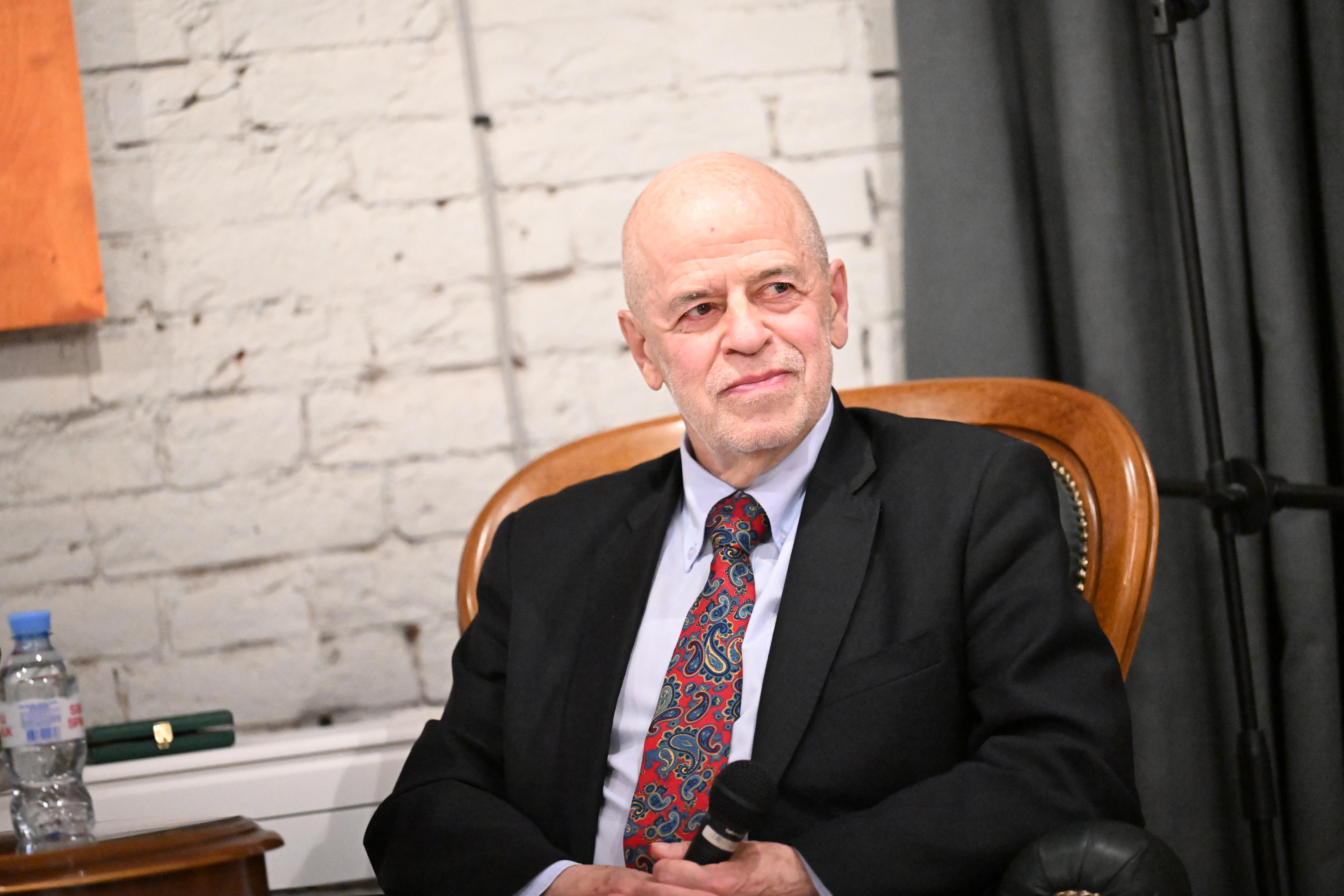
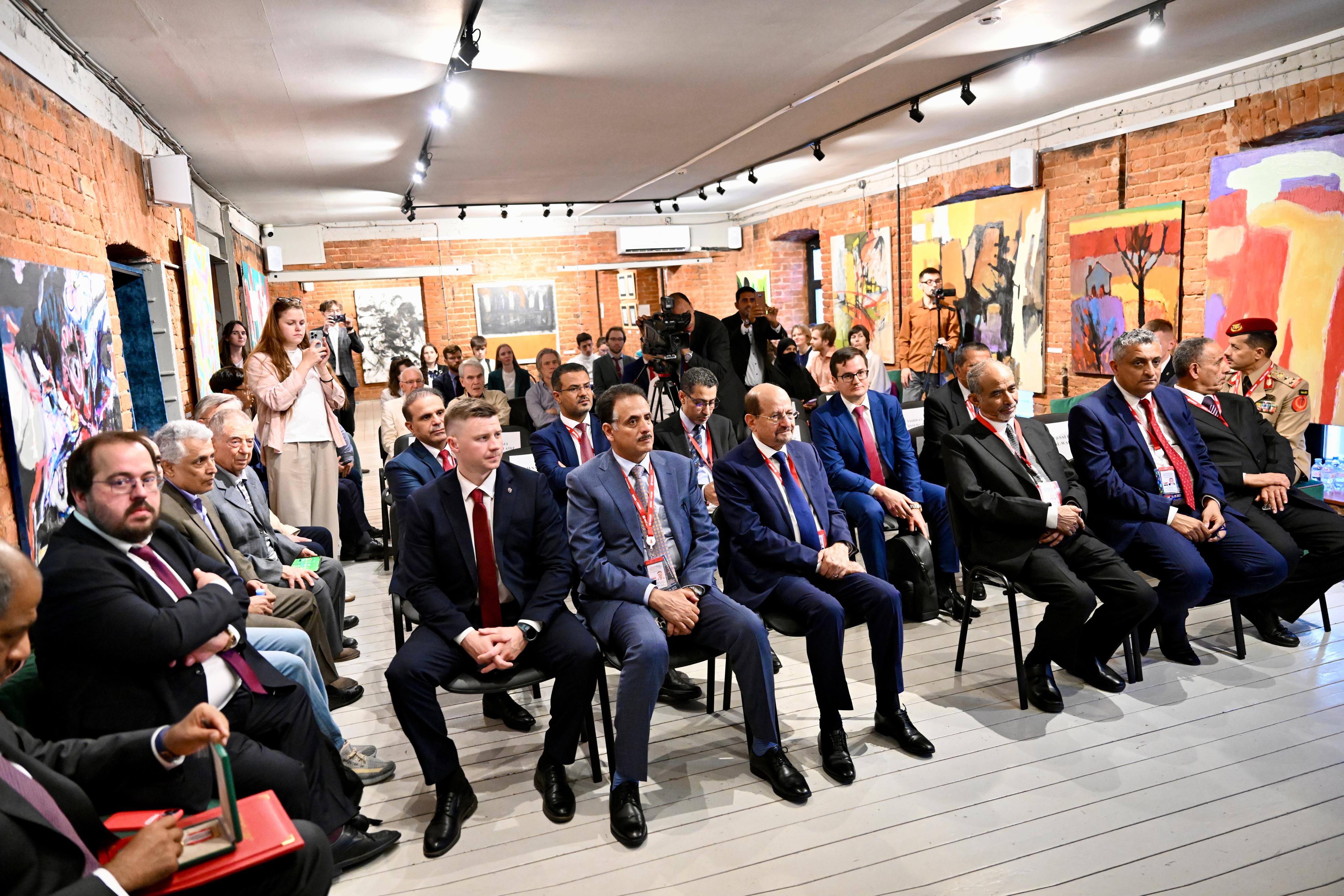
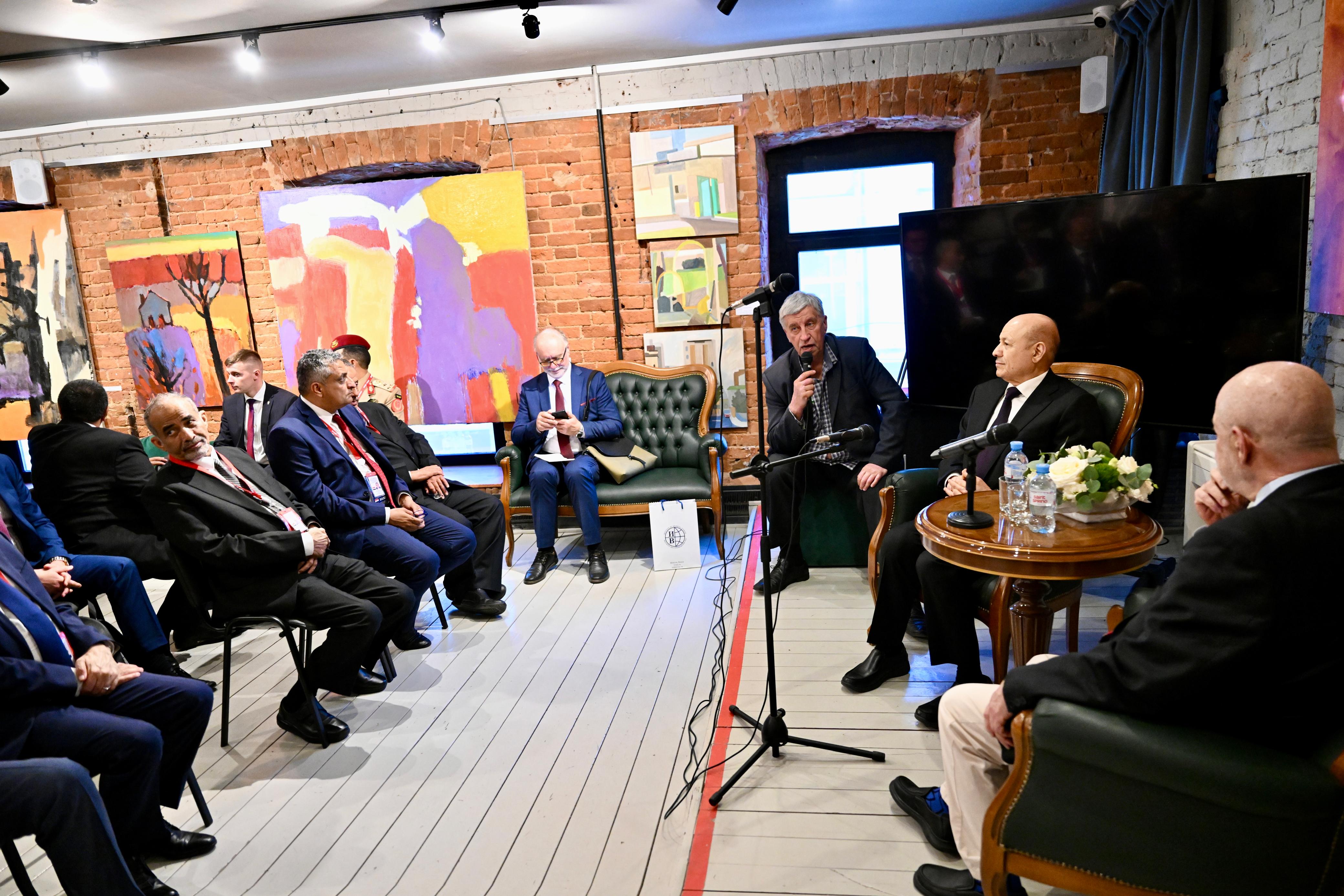
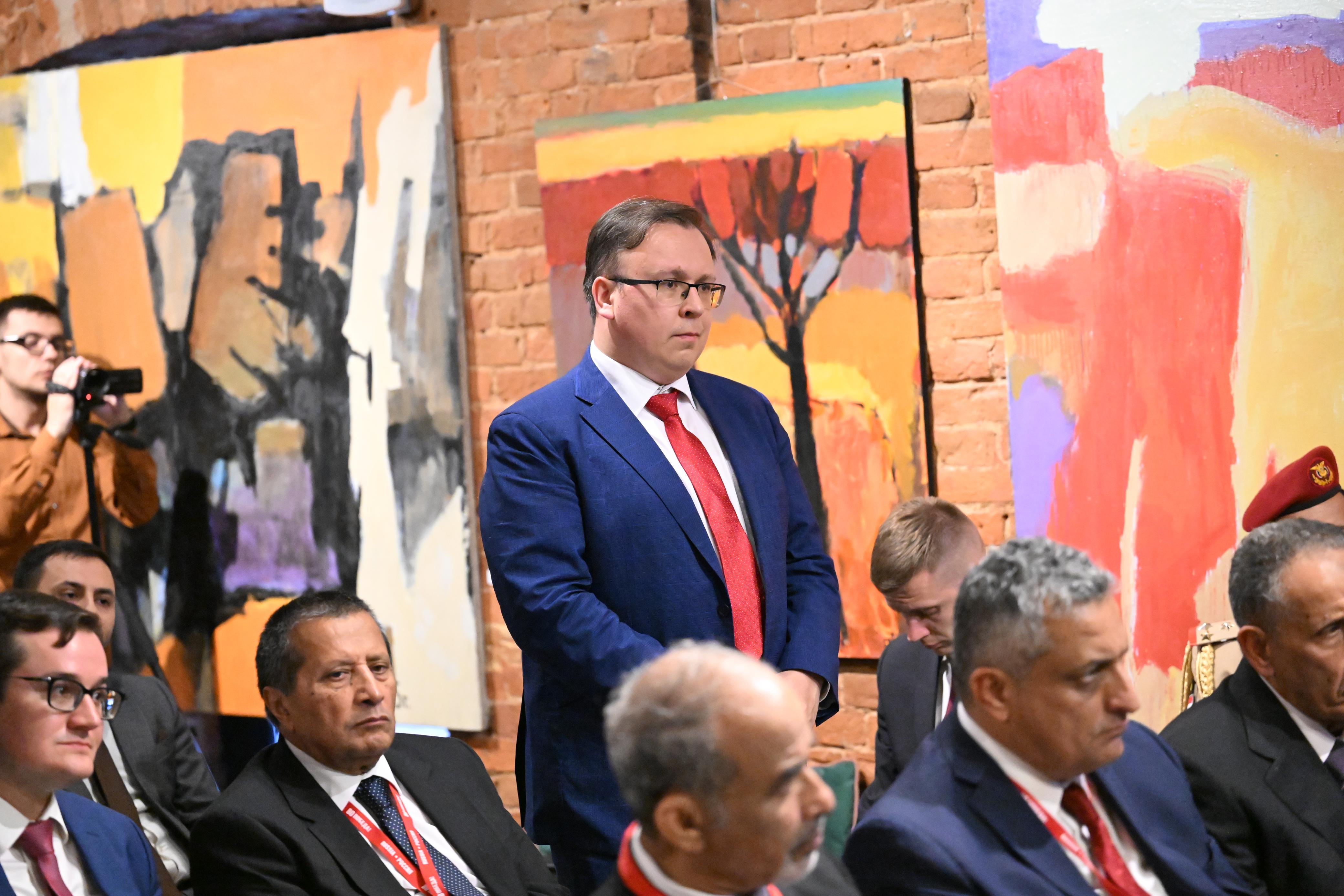
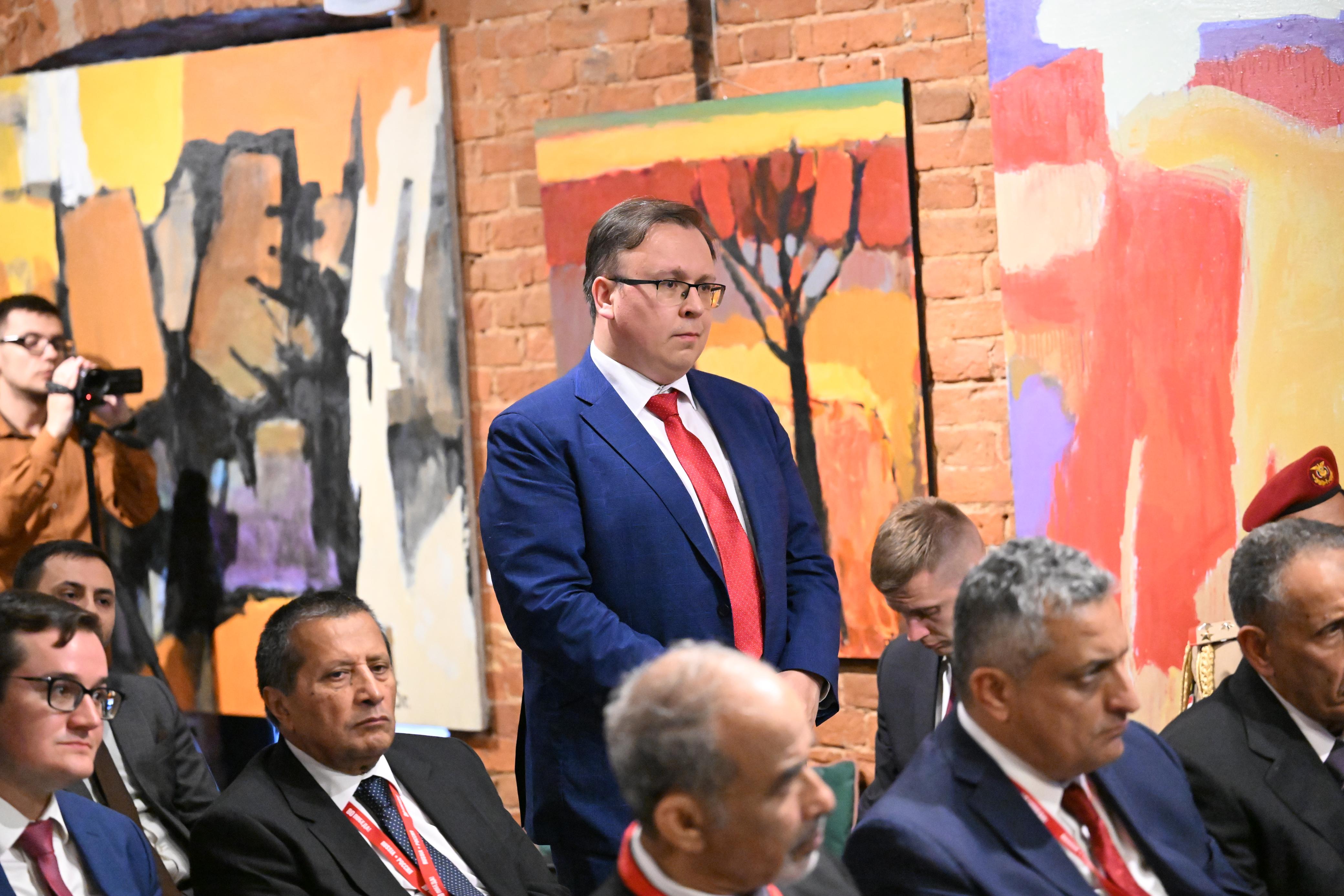
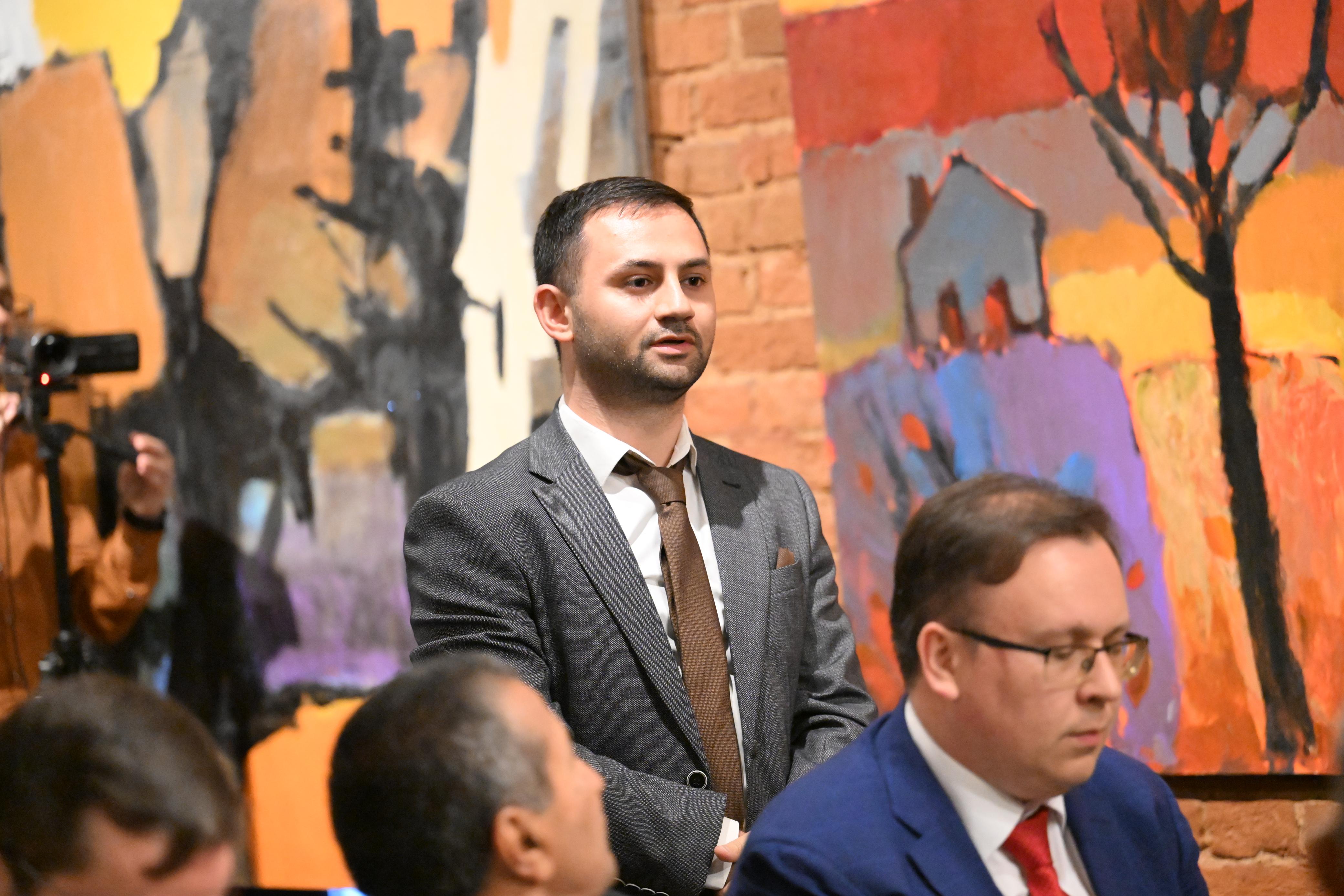
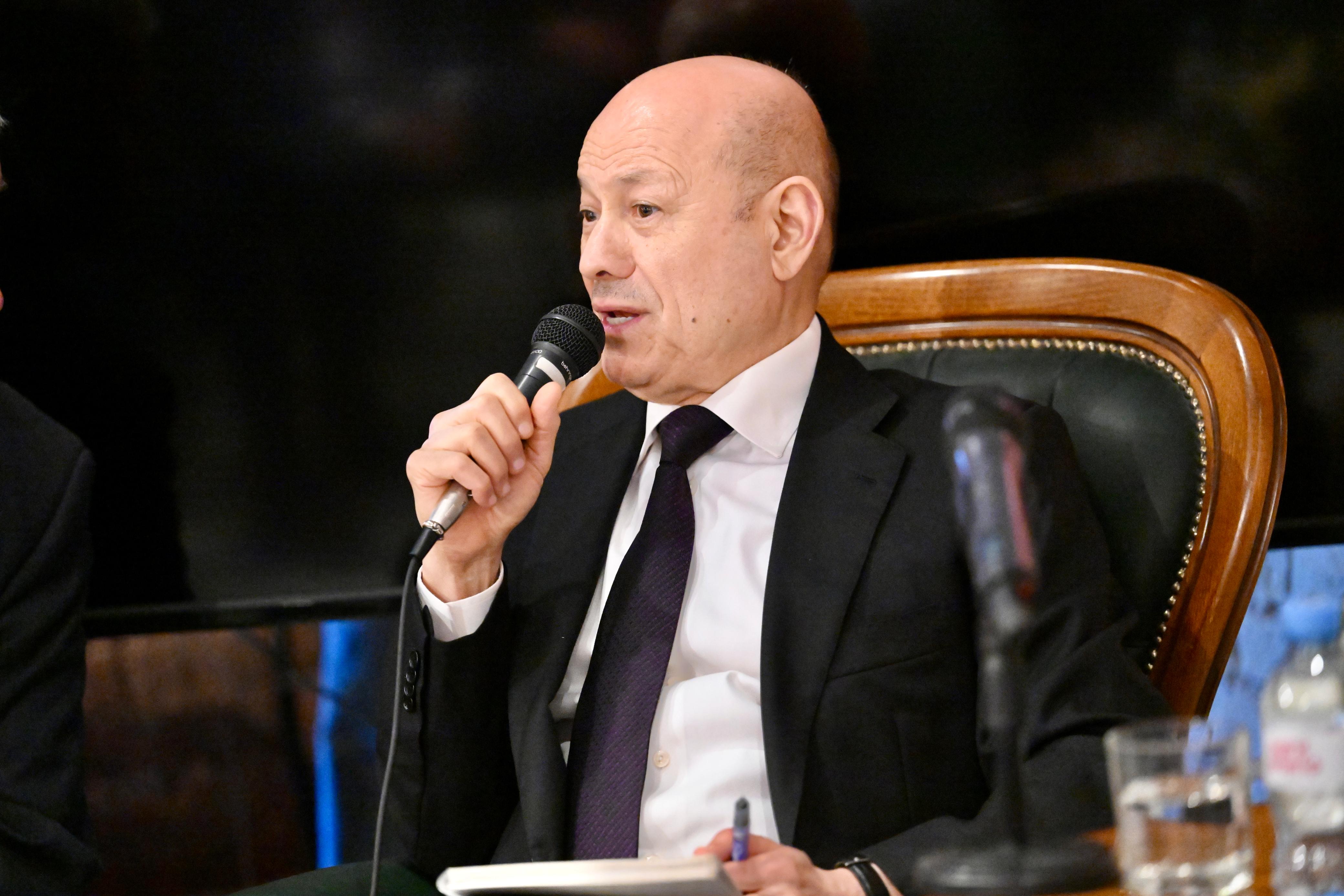
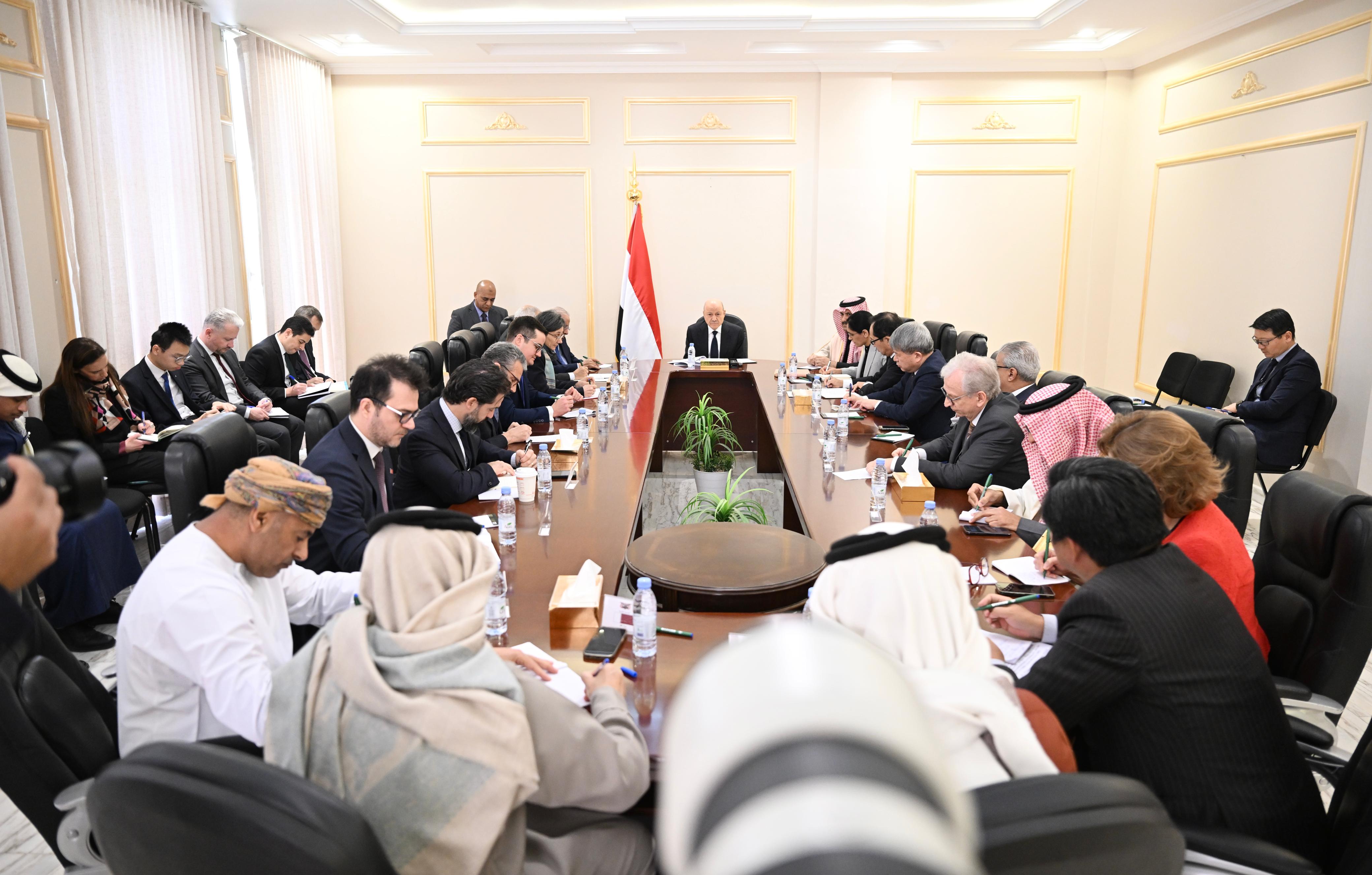
President Al-Alimi: Developments on Ground Are Promising and Refute Claims of a Vacuum and Worst-Case Scenarios
His Excellency President Dr. Rashad Mohammed Al-Alimi, President of the Presidential Leadership Council, said that state institutions are making tangible progress in unifying security and military decision-making

